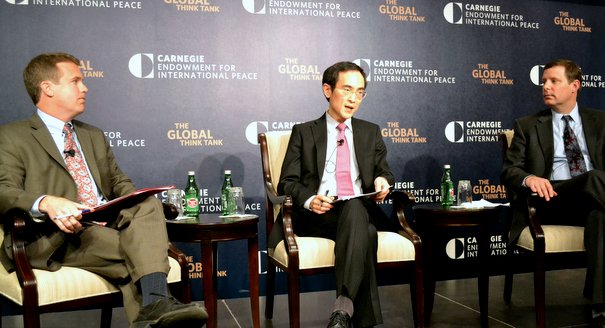Registration
You will receive an email confirming your registration.
Myanmar’s development stakeholders recently held their third cooperation forum in Naypyidaw, where they focused on inclusive development, the potential impact of an expected nationwide ceasefire agreement, and upcoming general elections. Japan and the United States are fine-tuning their aid programs to maximize political and social impact nationwide and to involve the private sector, but there are a myriad of challenges.
Japan’s incoming chief representative for development cooperation in Myanmar, Keiichiro Nakazawa, reflected on the development cooperation forum, explained Japan’s aid priorities in Myanmar, and considered how Japan and the United States can coordinate most effectively. USAID’s Jason Foley was a discussant, and Carnegie’s James L. Schoff moderated.
Keiichiro Nakazawa
Keiichiro Nakazawa was recently appointed by the Japan International Cooperation Agency (JICA) to be its chief representative in Myanmar. He previously served as chief representative of JICA’s U.S. office.
Jason Foley
Jason Foley currently serves as the deputy assistant administrator in the Asia Bureau of USAID, overseeing East Asia and the Pacific. He previously served as the director of Strategic and Program Planning in the Bureau of Policy, Planning, and Learning.
James L. Schoff
James L. Schoff is a senior associate in Carnegie’s Asia Program. His research focuses on U.S.-Japanese relations and regional engagement, Japanese politics and security, and the private sector’s role in Japanese policymaking.
